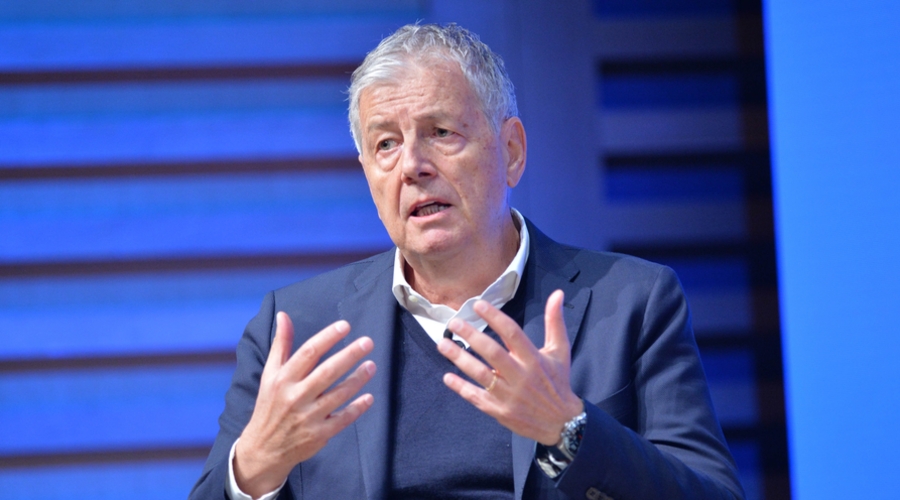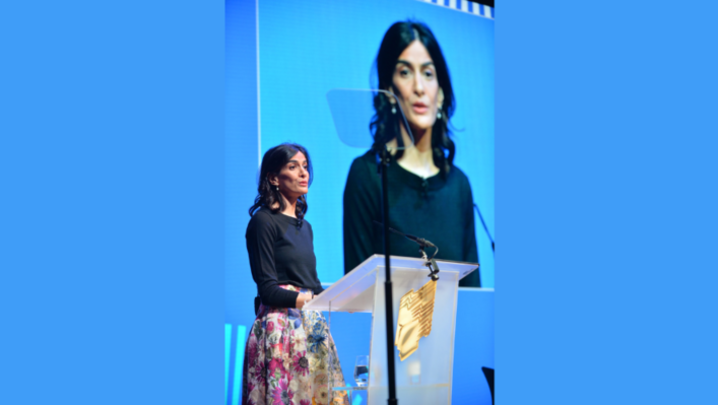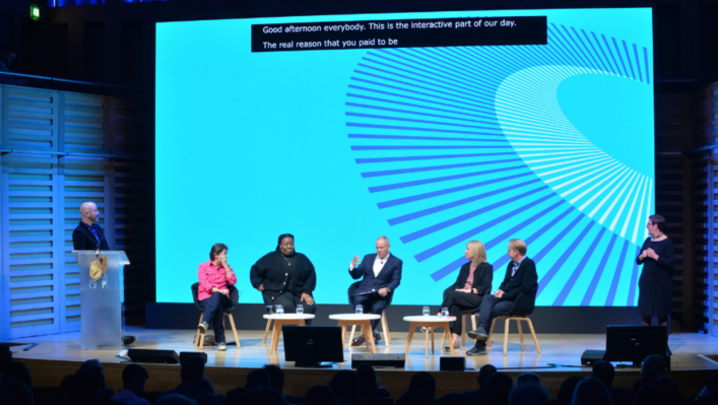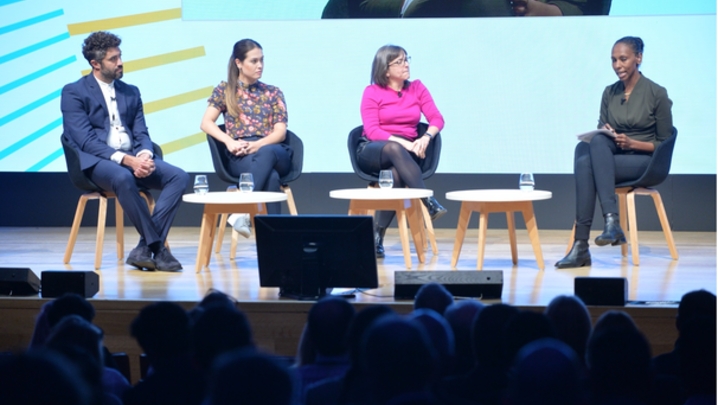Warner Bros. Discovery’s worldwide boss outside the US outlines why ‘must-have’ content is crucial for success.
Gerhard Zeiler is responsible for Warner Bros. Discovery (WBD) businesses across 200 territories, and has strategic oversight for the group’s brands and direct-to-consumer products outside the US.
Session chair Nina Hossain: WarnerMedia and Discovery completed their merger just six months ago. What’s your big vision for WBD?
Gerhard Zeiler: We’re a content company. We are storytellers, and we tell stories in many ways. We have invested in the theatrical business; we tell stories in TV series, whether scripted or unscripted; we are in games; we tell animated stories; we tell sports stories, documentaries; and last, but not least, we tell news stories.
Without boasting – we are not bad at this storytelling. The 48 Emmys we got a couple of weeks ago are proof of it.
There are three factors in our vision. First, the breadth of how we tell stories, which I [have] just explained. But probably the most important for our success, are the relevance and the quality of the storytelling.
Hand in hand with this vision goes a distribution strategy. When you tell stories in so many ways, it makes sense that your distribution strategy is very broad.
Lastly, we are not a closed shop. Yes, we are proud that a lot of our content is watched and released on our own networks, but we also sell content [to other parties].
The new business combines many different brands and business models, especially in comparison with some of your peers. Is that a strength or a weakness?
It may seem complex but I call it diversity. We don’t believe it makes sense to put all our content into one window. There are not many other companies that have as many global brands as we have. Think of Warner Bros., think of HBO, think of CNN, Discovery, Cartoon Network… they all have their own viewers; it makes sense to let viewers decide where they want to consume our products.
How difficult will it be to create a new tranche of powerful, successful brands?
We are happy with the brands we have. Where we will focus is probably more on the development of franchises. Think of the world of Harry Potter, Looney Tunes or Game of Thrones. House of the Dragon is a spin-off of that [last one] and maybe there will be additional ones. That’s what we focus on.
Where does local programming fit in to your vision?
I think there is one rule in our industry: if you want to be a successful global player, you have to have relevant local stories. The big hits will always be the likes of Batman, Succession, House of the Dragon, but in order to be a top-three player, you need to complement these big hits with locally relevant stories. Maybe not in every single market of the world, but in a lot of them.
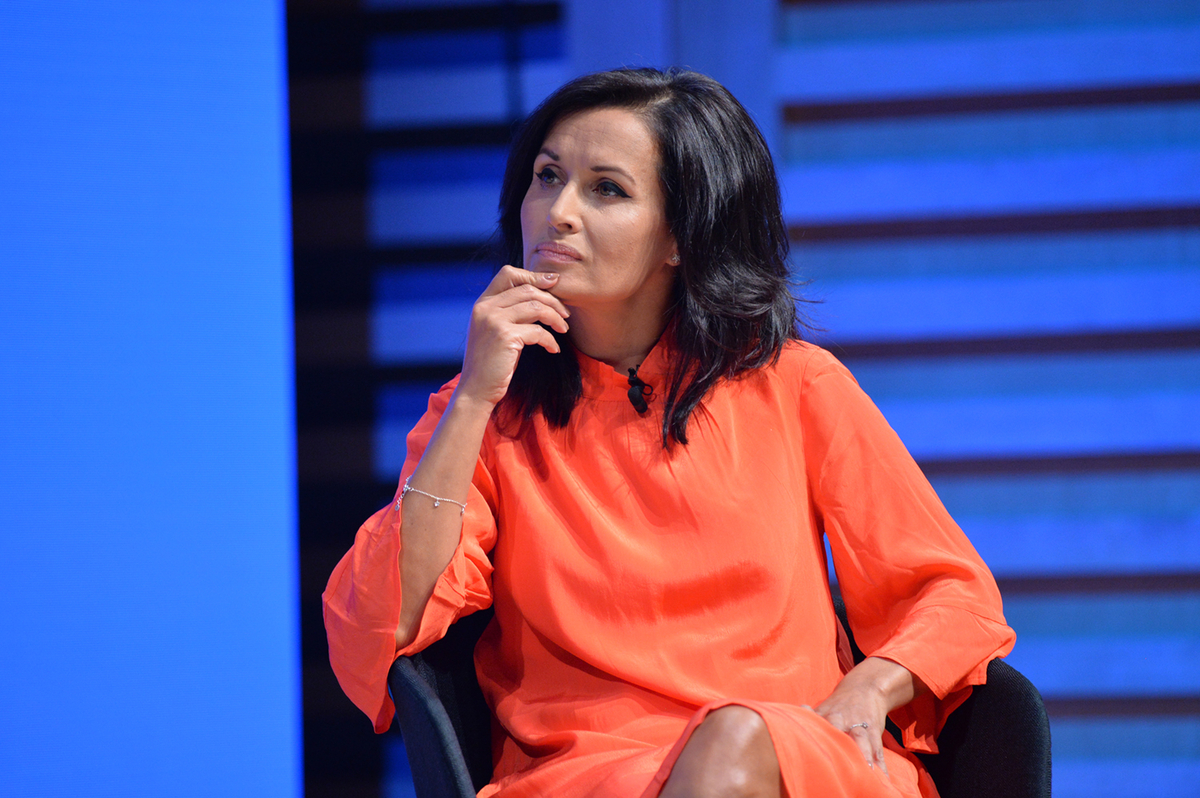
How do you encourage the idea that, if a local audience is talking about [a show, the company should be] trying to get it out to a global audience?
Ninety-nine per cent of what we produce locally on the streaming side is automatically released in all regions where we have HBO Max, and it is the same with Discovery+. If something gets traction in the local market, we can do a lot of marketing on our own platform and the other networks we have in order to try to accelerate that. But you don’t know beforehand whether it will be a success.
How important is the UK market to you right now?
We have invested for so many years in the UK. The UK is by far our biggest market outside the US in terms of revenue, people, employees and businesses. We have so many partnerships here. Our companies create content for Channel 4, we have a strong partnership with the BBC and, of course, the partnership with Sky, with a huge amount of co-production and also a deal where Sky is more or less the home for Warner Bros. and HBO.
The partnership is great. But Stephen [van Rooyen, Sky’s EVP and CEO for the UK and Europe] will not be mad at me when I say that one day – and I say this very carefully and vaguely – we will probably also want to have a streaming service outside Discovery+.
In terms of that partnership with Sky, how will it be affected by you forming a joint venture with Sky’s rival, BT Sport?
Sky is part of this deal because there was a huge amount of negotiations until [all parts of] the deal were done. It was before my time, but I heard it was a very complex transaction. I sent one of the people involved in negotiating this deal with Sky and BT to Asia because he just had to get away from the UK negotiations [audience laughter].
The good thing about our industry, which is different to some other digital businesses, [is that] the winner doesn’t take it all. It’s always good that there’s competition.
In terms of governmental policy, what would make the UK more attractive to the company?
The UK is such a strong market for us that I don’t think this will change a lot going forward. Would it be helpful if the Government knew that this industry is a really important one for the whole economic situation in the country? I think so. But I leave it to people who are based here to tell the Government that story.
I never believed some of the announcements from the previous Government – and don’t let me get into the details here – about future developments and the media in this country.
In terms of WBD, what does success from your point of view look like in five or 10 years from now?
We want to be a top-three media player, and I, personally, would be disappointed if the number three appears in front of our ranking. But this is only the headline – what real success means is different.
First of all, we have to, like everyone else, get the transition from linear to digital right. The second is that, yes, the focus on global subs will still be there, but that is not the only key performance indicator.
It’s also about revenue, and a path to profitability. Last, but not least, we have two streaming platforms, Discovery+ and HBO Max, and we will bring that together in the next year as one combined product, before we then launch in new markets.
This convention is about the fight for attention. As an industry leader, what’s your perspective on that landscape?
It must have been around the time of the first internet bubble, in 1999 or 2000, that I first heard that [soon] “TV will be dead”. TV is still not dead, and won’t die. Only how it is watched has changed, and it is shifting slowly.
The second thing is that we have had so many discussions in the past 20 or 30 years about who is the real king, is it content or is it distribution? I believe it’s about content, distribution, product – no consumer wants to have to make 30 clicks in order to get to a product – and price. All that forms a package.
Last, but not least, the time when “nice to have” was enough is over. It is now “must have”. If you deliver the “must-have” product, if you deliver the “must-have” content, you are a winner.
In Session One, ‘International keynote: Gerhard Zeiler’, the President, international, of Warner Bros. Discovery was interviewed by ITN newscaster Nina Hossain. The producer was Helen Scott. Report by Shilpa Ganatra.

